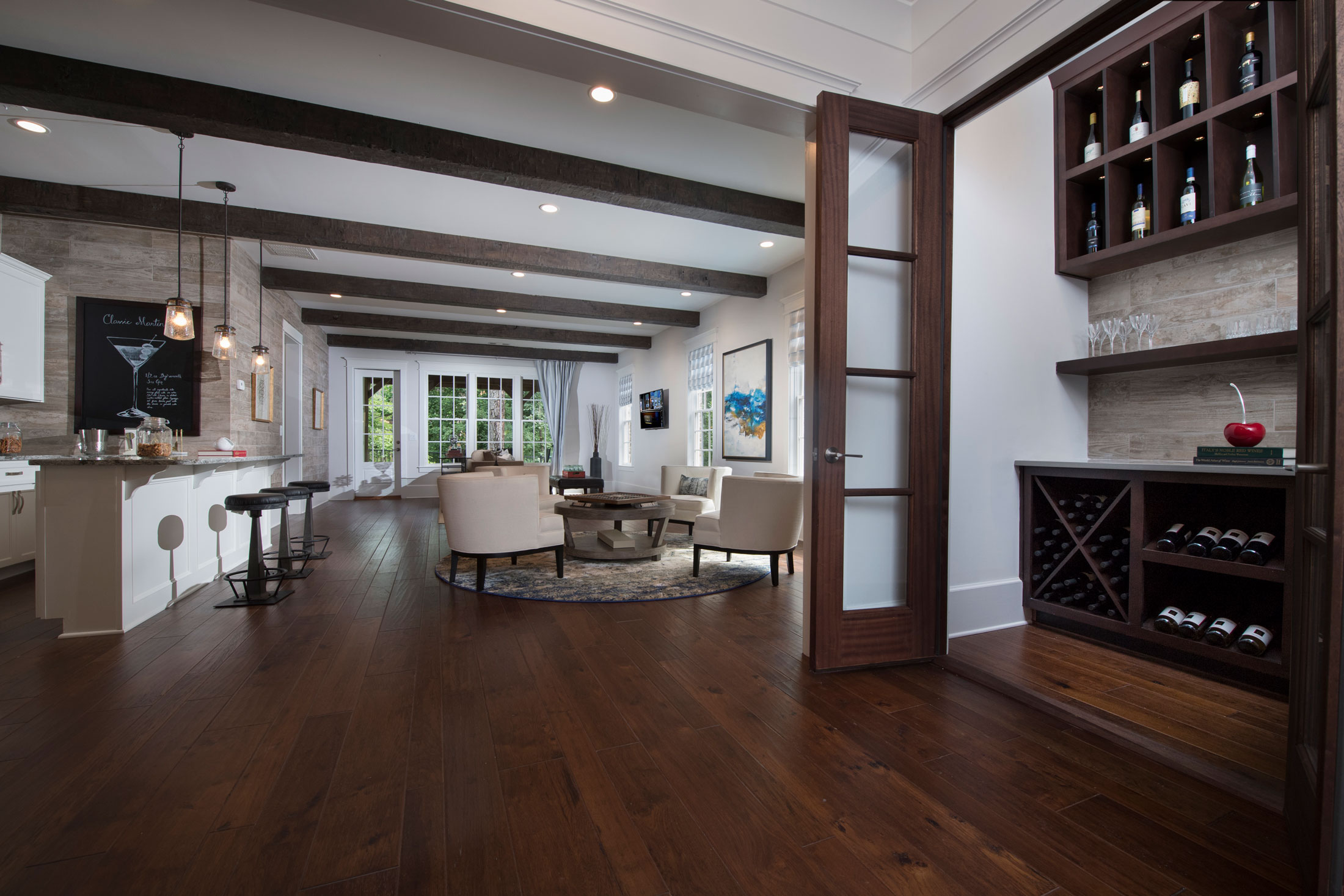Building a custom home is a dream come true for many people. The ability to design a home that perfectly suits your needs and desires is an incredible opportunity. However, building a custom home can also be a daunting task requiring significant planning and preparation.
This blog will discuss some essential things everyone should know before building a custom home.
Project Budget & Costs
Creating a realistic budget is one of the most critical aspects of building a custom home. Building a custom home can be expensive as there are numerous factors to consider when planning a budget. When considering a budget, consider the land cost and potential tax rate. While you can’t determine the exact taxes until the final assessment, looking up comps can help you understand your potential tax rate.
Your biggest expense will be the cost of the home itself. Once you select a builder and architect, you can choose from model homes or work directly with them to price out your costs based on the final floor plan and features. Your builder will be able to explain the costs of different finish options, such as hardwood floor vs vinyl planks, granite vs quartz counters, etc. Finally, it would be best if you also planned for unexpected expenses that may arise during the construction process. Delays, inflation, and upgrades can all add to the cost of your home. Having a contingency plan can avoid having to eliminate your dream items.
Hire Your Power Team: Architect, Builder, and Designer
Often you may find a trio that works together, but in some cases, you will have to hire your team to build your home. Understanding each part of building a home can help make your research much easier.
Architects design the layout and exterior of the home.
The residential builder will execute the design plans, including all home functions like electricity and plumbing.
Designers will bring your style to life by helping you choose the right colors and visual aesthetics.
Choosing the right team takes a lot of time and research. You should consider different builders, architects, or designers in your area and choose one with experience building custom homes. Review each of their portfolios or model homes if available. You can even drive through a neighborhood of homes that are similar to the style you are looking for. Don’t be afraid to ask for references from past clients and check reviews.
Plan for The Future
When building a custom home, thinking about your future needs is important. Consider factors such as your family’s size, aging in place, and any potential lifestyle changes that may impact your housing needs. Your location is also relevant to planning for the future. If you want to live in a large city that is always changing vs a small town, knowing the area can help you choose the right area for your future home. When visioning your future home, look for one that meets your needs but also design your custom home with flexibility in mind so that you can adapt it to your changing needs over time.
Storage is Key
While deciding between an open-concept layout and your dream kitchen, remember storage. Your home should have adequate closets, space, and room for your future needs. Adding crawl spaces and basement or attic storage can help you maximize the square footage of your home. Many individuals want to use their garage for their cars and outdoor equipment such as lawnmowers; ensuring you have enough room in your garage for the necessary items rather than home storage can help make a huge difference.
Invest In What’s Difficult To Change Later
Routine maintenance, like new roofing and windows, is common. However, many aspects of a home are difficult to update or change later. Popular features like radiant floor heating upgraded electrical wiring for sound systems, and even energy efficiency can be much more difficult to change over time. Discuss your options with your builder. Even if you are not ready to invest fully in additional features, rough-ins for certain projects make upgrades easier.
Anticipate The Project to Cost More
As much as you can plan and budget, custom-built homes tend to cost more than you expect. It doesn’t necessarily mean that your team spent more than the budget. As mentioned earlier, planning for unforeseen costs, such as inflation on building materials, last-minute upgrades, or even small changes, such as choosing a different cabinet hardware or faucet finishes, can
quickly add up.
Expect the Project to Take Longer than Anticipated
Regardless of how well-planned a build is, builders prepare for setbacks. Common setbacks range from weather delaying the early build phases to securing permits, subcontractor availability, and inspections. Unfortunately, builders are at the mercy and timeline of city permit processing and inspections. If there is a backlog, they will need to wait their turn. Many construction phases can only proceed once the inspection is complete and passed.
Other common setbacks as the project progresses include receiving materials and appliances.
Building a custom home can be an incredibly rewarding experience, but it requires careful planning and preparation. Considering these essential factors before you begin, you can ensure your custom home project succeeds. You can create the home of your dreams with the right budget, location, builder, energy efficiency, future planning, and attention to detail. Contact the team at WaterStone to help make your dream custom home a reality.

